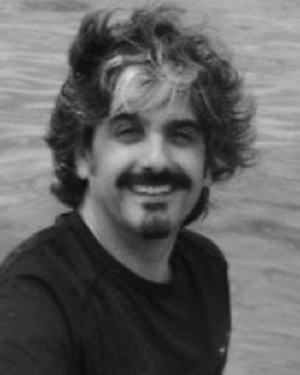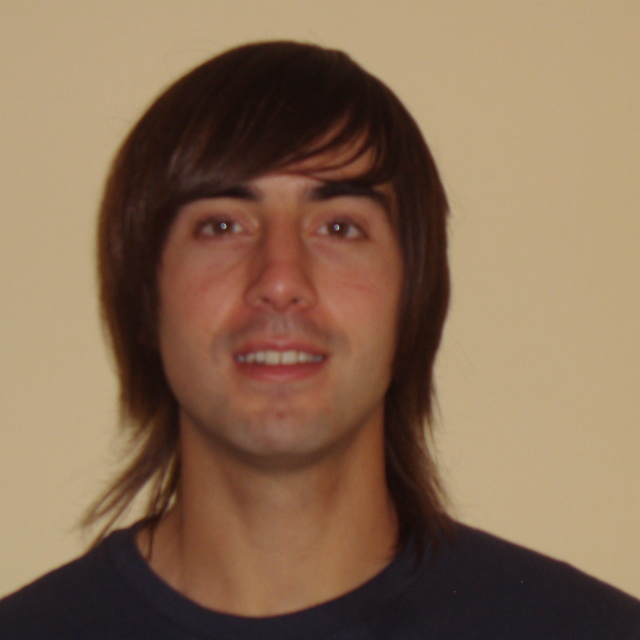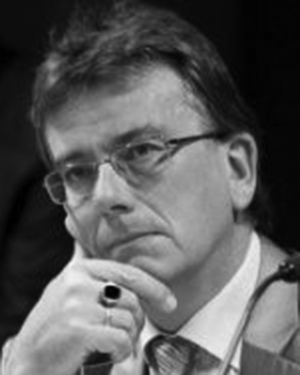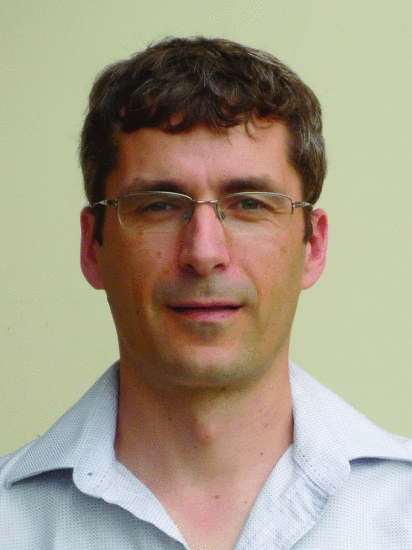OCEANIC ENGINEERING
TECHNICAL PROGRAM COMMITTEE

Gerardo Acosta
Gerardo G. Acosta received the Engineering degree in electronics from the National University of La Plata, La Plata, Argentina, in 1988, and the Ph.D. degree in computer science from the University of Valladolid, Valladolid, Spain, in 1995. He is currently a Full Professor in control systems (electronic area) in the Engineering Faculty at the National Buenos Aires Province Centre University (UNCPBA), Tandil, Argentina. He is also a Researcher of the Argentinean National Research Council (CONICET), since 1997, and the Director of the Research & Development Group “INTELYMEC,” CIFICEN CONICET-UNCPBA. His working interests comprise the use of computational intelligence in automatic control, particularly intelligent control techniques in terrestrial and underwater robotics. He has more than 150 publications and two copyrights in this and related fields.,Dr. Acosta was the Chairman of the IEEE Computational Intelligence Society Argentinean Chapter (2007–2008), received the 2010 Outstanding Chapter Award from CIS, and is the current Chairman of the IEEE Oceanic Engineering Society Argentinean Chapter, being one of its founders. He was also a Member of the Administrative Committee of the IEEE OES (2015–2016). He has been the Research Leader of more than ten R+D projects, funded by the Argentinean Government, the Spanish Government, and the European Union.
Image source IEEE
|

Sebastián A. VillarSebastian A. Villar graduated as Systems Engineer at the Exact Sciences Faculty of National Buenos Aires Province Centre University (UNICEN), Argentina (2009), and as Masters in Business Administration (MBA) Economic Science Faculty of UNICEN (2011), and as Ph.D. in Engineering, at Engineering Faculty of UNICEN (2014). He is also a asistent researcher of the Comisión de Investigaciones Científicas (CIC) of the Buenos Aires Province, working in Engineering Group INTELYMEC. Main topic of interest in Robotics, Software, Acoustic SONAR and image processing |
| Chair | Co-Chair |
DISTINGUISHED LECTURERS

John PotterJohn Potter received joint honors degree in mathematics and physics from Bristol University, Bristol, U.K., in 1979 and the Ph.D. degree in glaciology and oceanography from the University of Cambridge, Cambridge, U.K., in 1985, he received the Polar Medal for this work by Queen Elizabeth II in 1988. He worked in Italy on propagation fluctuations in underwater acoustics from 1986 to 1991, then sailed across the Atlantic and through the Panama canal to San Diego where he worked at the UCSD Scripps Institution of Oceanography on Ambient Noise Imaging and Marine Mammal Acoustics. In 1995, he sailed on with his family from San Diego to Singapore, where he founded the Acoustic Research Laboratory (ARL) and helped create the Tropical Marine Science Institute. He headed the ARL and was an Associate Director of the TMSI for 12 years, working on passive acoustic imaging, marine mammal acoustics, distributed autonomous intelligent sensing, underwater communications networking, and cooperative behavior. After co-chairing OCEANS Singapore in 2006, he returned to Italy, first as a Consultant, then as a Project Leader and currently as the Principal Strategic Development Officer at the NATO STO Center for Maritime Research and Experimentation.,Dr. Potter has been an active member of the IEEE OES for more than 20 years, serving three terms on the Administrative Committee. He is also an Associate Editor for the IEEE Journal of Oceanic Engineering and an International Fellow of the Explorer’s Club. |

Stefan B. WilliamsStefan B. Williams is an Associate Professor in the University of Sydney’s School of Aerospace, Mechanical and Mechatronic Engineering. He is a member of the Australian Centre for Field Robotics where he leads the Marine Robotics group. He is also the head of Australia’s Integrated Marine Observing System AUV Facility. His research interests include Simultaneous Localization and Mapping in unstructured underwater environments, autonomous navigation and control and classification and clustering of large volumes of data collected by robotic systems. He received his Ph.D. from the University of Sydney in 2002 and completed a Bachelor of Applied Science with first class honours in 1997 at the University of Waterloo, Canada. |
| Distinguished Lecturer | Distinguished Lecturer |
DESCRIPTION
At IEEE, this topic includes all aspects of science, engineering and technology that address research, development and operations related to all bodies of water. This also includes the creation of new capabilities and technologies from conceptual design to prototypes, tests and operating systems.
| SUGGESTED SUBTOPICS |
| For this topic, the following subtopics are suggested. Please note that you may send your paper beyond the scope of this list. In such a case, you must specify, in submission web form, the new subtopic that you consider your paper belongs to, as per instructions in Tutorial for Paper Submissions., under the paragraph How to specify a subtopic that is not predefined. |
- Control systems
- Instrumentation
- Oceans and Climate Change
- Plastic pollution
- Positioning systems
- Renewable energy sources
- Underwater acoustics
- Underwater robotics
ACCEPTED PAPERS
| ID | Título (Title) | Autor (Author) | Programa (Track) |
|---|---|---|---|
| 97 | A robust version of the Lee filter for speckle removal and contrast enhancement applied to side scan sonar images | Ferraggine, Viviviana • Villar, Sebastián | OCEANIC ENGINEERING |
| 133 | Numerical modelling of broadband acoustic signatures for two Argentinian swimbladdered fish species | Lavia , Edmundo F • Gonzalez, Juan D • Menna, Bruno V • Prario, Igor S • Cascallares , Guadalupe • Cabreira , Ariel • Madirolas , Adrian • Blanc, Silvia | OCEANIC ENGINEERING |
